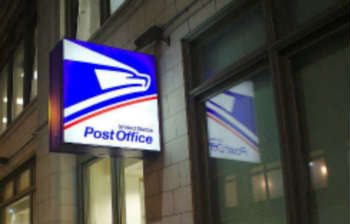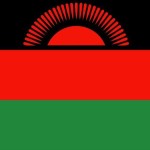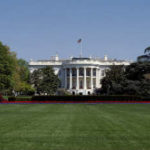Establishment Of The First U.S. Postal Service
Prior to the establishment of the postal system, ships carried mail to and from Great Britain. Locally, individuals sometimes relied on friends to deliver mail. At times, Native Americans transported mail for colonists. The process of sending mail and receiving a reply was long and unreliable.
Ira Riklis shares how publisher William Goddard set the wheels in motion for the establishment of the U.S. Postal Service and appointment of the first official U.S. postmaster general.
Early History Of Postal Services In The U.S.
The first official records of a postal service in North America names Richard Fairbanks of Boston as the individual responsible for mail sent to and from overseas in Boston. However, mail did not go through a post office. Fairbanks operated from his tavern.
Siegel Auction Galleries states that between 1672 and 1673, King Charles II instructed Governor Lovelace of New York to create regular communications by postal service throughout all the colonies. This did not last because a few months into the postal operations, the Dutch recaptured New York City.
However, by 1674, 24 postal routes operated in Virginia, Connecticut, and New Hampshire. No actual federal postal system existed.
Benjamin Franklin Becomes Temporary Postmaster General
The United States Postal Service (USPS), in providing information about mail delivery during early colonial years, explains that Governor William Penn of Pennsylvania established the first post office there in 1683. Southern plantations still used slaves to deliver messages.
Meanwhile, the British Crown awarded a 21-year grant to Thomas Neale to establish the North American postal system. Neale failed to visit America, appointing Alexander Hamilton, New Jersey’s governor, as deputy postmaster general. Still, no federal postal system existed and there was not yet an official postmaster general of the colonies.
Alexander Spotswood, Virginia’s former lieutenant governor, named Benjamin Franklin Philadelphia’s postmaster in 1737. Later appointed as joint postmaster general by the crown, along with William Hunter, Franklin improved the mail system within America.
Franklin increased the number of deliveries between some of the colonies, established routes that proved more efficient and made personal inspections of local mail delivery points, still often located in taverns and inns. Benjamin Franklin also established the first postal rate system, which likely contributed to the first profit realized by the colonial posts in North America.
However, Benjamin Franklin soon found his initial appointment to the postal service short-lived. The USPS says that the Crown fired Franklin from his position in 1774 due to his actions in support of causes sympathetic to the colonies.
William Goddard Presents Ideas For The American Postal System
One reason that the British likely punished Franklin was his association with publisher William Goddard. The Smithsonian National Postal Museum explains that Goddard used private carriers to transport his Pennsylvania Chronicle paper to readers.
Goddard spoke of abuses committed by the British, including the fact that the British refused to accept the Pennsylvania Chronicle in the mail.
He took his cause to Congress in October 1774, presenting his own plan for an American postal system. Goddard wanted a mail system created and implemented that was founded upon constitutional principles of open communication, freedom from governmental interference, as well as the guaranteed free exchange of ideas.
USPS Finally Established
Congress delayed a decision on the Goddard plan until after Battles of Lexington and Concord. Congress took up the idea again, naming a committee that included Benjamin Franklin, Samuel Adams, Thomas Lynch, and other noted colonists to explore creating a postal system.
On July 26, 1775, the Second Continental Congress formally established the U.S. Postal Service and named Benjamin Franklin the first official postmaster general. The USPS points out that the present day U.S. Postal Service descends from the postal system that Franklin placed in operation.






